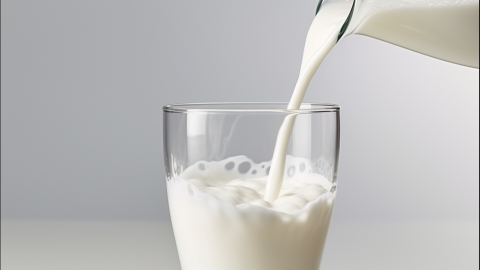Can pure milk and eggs be eaten together?
Under normal circumstances, pure milk and eggs can be consumed together, but excessive intake is not recommended. The analysis is as follows:
Pure milk is rich in high-quality protein, calcium, phosphorus, vitamin A, vitamin D, and vitamin B₂, among others. Eggs contain abundant high-quality protein, fat, vitamins, minerals, and bioactive components such as lecithin.
In general, pure milk and eggs can be eaten together. Both are excellent sources of high-quality protein. Consuming them together provides a more diverse array of amino acids, enhances the protein's nutritional value, and promotes better absorption and utilization by the body, thus helping to maintain muscle mass and boost immunity.

The calcium and vitamin D in pure milk work synergistically with nutrients like vitamin K in eggs to aid calcium absorption and utilization, benefiting bone growth, development, and the maintenance of healthy bones, making this combination suitable for children, adolescents, and the elderly.
Although pure milk and eggs are nutritionally rich, excessive consumption should be avoided. Overconsumption may lead to excessive calorie intake, increasing the risk of obesity, and may also burden the gastrointestinal system, potentially causing digestive issues.
Some individuals lack lactase, the enzyme necessary to digest lactose in milk, and may experience discomfort such as bloating, abdominal pain, or diarrhea after drinking milk. These individuals can opt for low-lactose or lactose-free milk products or consume smaller amounts multiple times throughout the day to gradually adapt.








